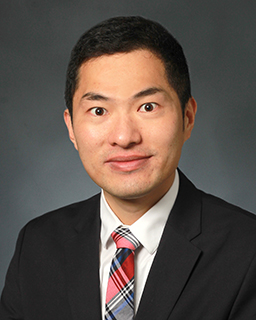Lian to work as co-investigator on Multidisciplinary Research Seed Grant project
03/18/2016
Ibrahim Tarik Ozbolat, associate professor of engineering science and mechanics; Sulin Zhang, associate professor of engineering science and mechanics and bioengineering; and Xiaojun Lance Lian, assistant professor of biomedical engineering, were recently awarded a Multidisciplinary Research Seed Grant for their project "Engineering Reptile Tissues for Self-Locomotion."
Engineered tissue models have previously been demonstrated to power nonliving, inert components such as polymers; however, engineering a fully biological tissue, which will have its own circulatory system (i.e., blood vessels) and nervous system with long term viability and sensing capability, has not yet been demonstrated. Such tissues would have the ability to dynamically sense, adapt, and biomechanically respond to physical cues and applied stimuli.
The interdisciplinary research team of Ozbolat, Zhang, and Lian, which brings together complementary expertise in biofabrication, tissue engineering, cardiac engineering, stem cell biology, and soft tissue biomechanics, will investigate engineering fully biological locomotive reptile tissues. The tissues will have the ability to exhibit self-powered motion capabilities using synchronized contraction of cardiac cells, which can be further engineered biomechanically to exhibit programmable self-locomotion. Their groundbreaking research, and the first of its kind, will seek to demonstrate the first complete biological machine with the capability of untethered motion.
This transformative technology will have a wide variety of futuristic applications in both medicine and healthcare, including in-situ surgical robots with organ repairing capabilities within the human body, programmable tissue engineering, biomimetic machine design, smart drug release with targeted delivery, diagnostic machines in human circulatory systems, and biological devices for minimally invasive surgeries.
Funding for the project will begin July 1, 2016. The investigators will later collaborate with experts from the Penn State Center for Neural Engineering to integrate a nervous system with the biological tissues for improved sensing capabilities.
The Multidisciplinary Research Seed Grant program, administered by Penn State’s College of Engineering, was established in 2014 and is designed to help faculty attract high-impact multidisciplinary and center-level research funding from the state and federal government, industry, or foundations. A total of 34 proposals were submitted for this year’s program, with six projects awarded funding. You may view the full list of award winners here.




